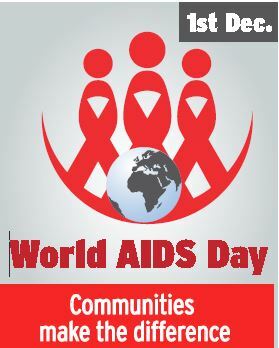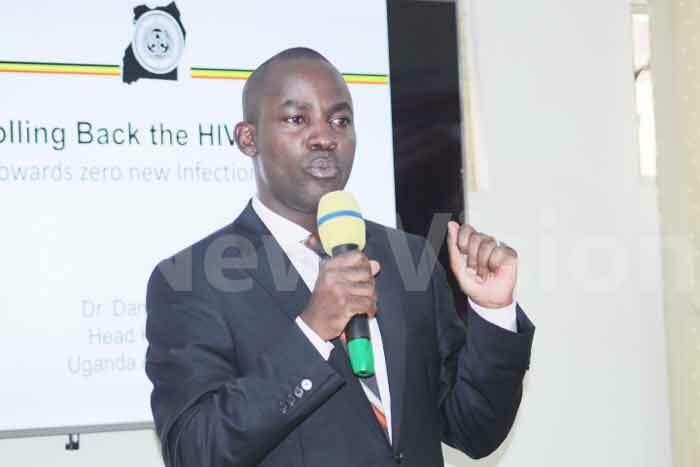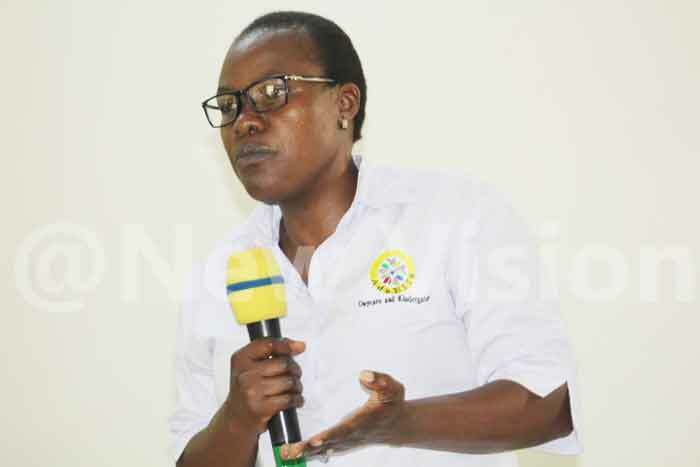Will Uganda meet her 2020 target?
Byamukama says while there have been increased efforts to scale up treatment initiatives in Uganda there are still many people living with HIV who do not have access to the medicines they need.
Some of the participants what the training. Photo by Racheal Nabisubi
WORLD AIDS DAY HIV UNAIDS TARGETS
It is just two months to 2020. According to the UNAIDS 90-90-90 targets of scaling down the AIDS epidemic by 2020, Uganda is behind schedule.

Dr. Daniel Byamukama, the head of HIV prevention at the Uganda AIDS Commission (UAC), said Uganda is unlikely to meet the targets.
The 90-90-90 stipulates that by 2020, 90% of all people living with HIV will know there HIV status, 90% of all people with diagnosed HIV infection will receive sustained antiretroviral (ARVs) therapy and 90% of all people receiving antiretroviral therapy will have viral suppression.
Byamukama says while there have been increased efforts to scale up treatment initiatives in Uganda there are still many people living with HIV who do not have access to the medicines they need.
The Joint United Nations Programme on HIV/AIDS (UNAIDS) report currently indicates that only 84% know there HIV status, 87% are receiving ARVs and 88% on viral suppression. Byamukama explained that the number of people contracting HIV has more than doubled. "We are also not doing well as regards to HIV prevention," he said.
According to 2018 UNAIDS reports, over 53,000 people are infected with HIV, and there are 26,000 AIDS-related deaths. Speaking on the sidelines of the Health Journalists Network in Uganda (HEJNU) meeting in Kampala last week, Byamukama revealed that a number of challenges are derailing them from achieving the 2020 epidemic control target.
He revealed that stigma is still one of the biggest challenges, and some people are still shy to know there HIV status.
He emphasized that those who know there status are still scared to go for treatment. He added that non-adherence to treatment is another challenge.
He cited cases of mothers who go for antenatal services and when they establish they are HIV positive, they do not take the medication which would have prevented transmission to the babies.

Dr. Daniel Byamukama head of HIV Prevention at Uganda Aids Commission addressing journalists during the training. Photo by Racheal Nabisubi
"These mothers pose a risk to themselves and there babies. Also, the number of people living with HIV who fail to take there ARVs is still high," he explained.
There are about 200, 000 out of 40million people in Uganda know there status, and there are 1.3m people living with HIV/AIDS. Byamukama also observed that there is a reduction in condom use.
"We are seeing a negative trend in condom use, yet they (condoms) used to be the main method of HIV prevention for sexually active people," Byamukama said. He added that they would like to see people get back to using condoms until they finish the battle of ending HIV in Uganda.
Nonetheless, Dr. Barbra Nanteza, head of Voluntary Medical Male Circumcision (VMMC) said a number of men still shun circumcision yet it has higher chances of preventing HIV infections.
Sylvia Nakasi, the policy, and advocacy officer, Uganda Network of AIDS Service Organizations (UNASO) said a voluntary male circumcision is an important tool in the HIV prevention tool that needs to be embraced by both male and female in terms of information sharing.

Dr. Barbra Nanteza head of Voluntary Medical Male Circumcision (VMMC). Photo by Racheal Nabisubi
"When we are drafting the circumcision messages, we need to also target the female partners because they are key players in supporting there husband especially when it comes to wound healing and managing the wound," Nakasi said.
She added that they also support there husbands to abstain from sex until the six weeks elapse for the wound to heal.
Byamukama called for dialogue to change people's mindset and attitude in regard to HIV.
"If we do not stop the stigma associated with HIV in Uganda, I am pessimistic that our goal of ending new HIV infections in Uganda will be realized," he said.